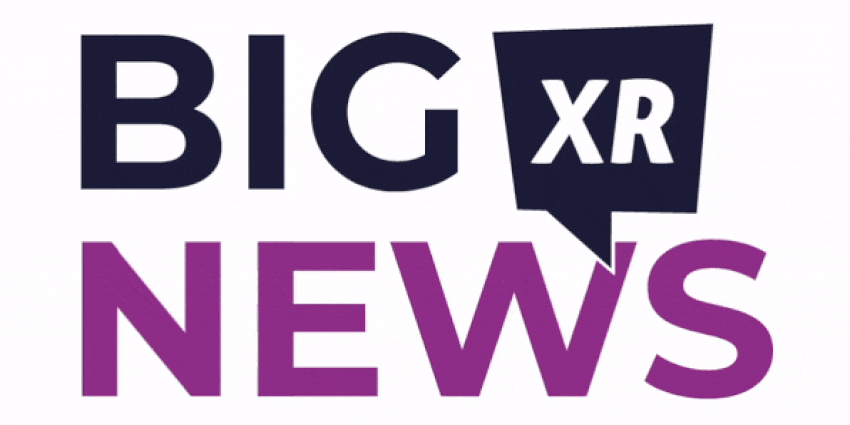This week, the Metaverse may be taking its steps towards enterprise adoption. Following major European regulations, industrial Metaverse solutions providers are emerging to help improve workplace efficiency and outcomes leading into the new year.
Moreover, as the XR space continues to grow as a potential enterprise tool, growth and scalability initiatives are helping enterprise end-users leverage XR to its maximum potential.
2023 is a strong year for XR, and following a decline in interest at the start following Metaverse dismay and AI refocuses; the immersive space could ramp up for another wave of adoption as new central devices ready users for an XR-heavy 2024.
Microsoft Start Industrial Metaverse Roadmap
At Microsoft Inspire 2023, a showcase event covering the firm’s latest innovations. Microsoft quietly teased information regarding an industrial metaverse initiative the firm will kick off in 2024.
As part of its AI Cloud Partner Program, which sees Microsoft team up with leading technology companies to fuel growth and innovation towards enterprise-grade AI, Microsoft will start supporting efforts to grow industrial metaverse solutions – and related technologies.
The partnership will innovate AI, Cloud, and Metaverse solutions to increase enterprise end-user productivity, resiliency, and sustainability.
The firm also offers a “curated learning path” to provide end-users with resources to introduce workplace XR technology – which includes considerations for a range of integrated technologies, such as Microsoft Co-Pilot, Azure OpenAI, AI, ML, Azure Databricks, Synapse Analytics (2024), Microsoft Fabric (2024), Microsoft Purview, Power Platform, D365 Field Service, D365 Guides, D365 Remote Assist, HoloLens 2, Azure Maps, Azure HPC product, and Azure Digital Twins.
Meta CTO on Apple Vision Pro, Quest 3 Going Head to Head
During an online Q&A, Meta CTO Andrew “Boz” Bosworth recently revealed several updates regarding the upcoming Meta Quest 3 device and its Vision Pro competition.
Boz was careful not to reveal too much concerning the upcoming device. However, as part of his Q&A, the CTO explained that the device would have roughly 2 hours of battery life, prescription glasses support, redesigned controllers, infrared tracking, full-colour cameras, outward-facing cameras, and 100-degree FOV.
Moreover, Boz noted that Meta did not drop its device to align with Apple’s WWDC announcement.
Boz also noted:
We want to announce it [the Quest 3] early, so that people know it’s coming, so they can plan well in advance of the holiday season what they want to do. So that was our plan from a long time ago, and the timing worked out unbelievably well. I’m not mad about it… I’m not saying I’m mad about it, I’m just saying that was the plan that we developed in terms of go-to-market, and it had nothing to do with [Apple’s Vision Pro].
Siemens Invests €1bn into Industrial Metaverse
Siemens is investing roughly €1 billion into enterprise-grade Metaverse solutions that will assist the German region lead in technology innovation.
Moreover, Siemens is looking to become “the nucleus of global technology activities for the industrial metaverse” with its significant investment.
Thierry Breton, Commissioner for Internal Market, explained:
We’re laying the foundation for the industrial metaverse in the Nuremberg metropolitan region. Here, on the new campus, we’re combining the real and the digital worlds. Together with partners, we’re developing new digital technologies in the metaverse and revolutionizing how we’ll run our production in the future – much more efficiently, flexibly and sustainably.
Additionally, Siemens will open an Erlangen-based Technology Campus to help immersive experts collaborate globally on R&D via €500 million to boost manufacturing capabilities.
Siemens hopes to reduce the carbon footprint of the 200,000-square-metre Erlangen factory and reach net-zero emissions by working with the Erlangen city government targets.
Siemens’ expansion plans will include leveraging its sustainable technologies and boosting green energy supplies and storage.
Mozilla Hub Scales to 30+ Regions
Mozilla is looking to get a leg in the immersive collaboration space after a long development period starting in 2019.
The service’s expansion roadmap sees the platform scale its regional coverage to reach more education and enterprise end-users, including regions such as Canada, the UK, the US, Singapore, Germany, the Netherlands, and Romania.
The firm’s international expansion could prove crucial for enterprise end-users, as the global availability of an immersive collaboration service allows team members to collaborate virtually without overbearing regional restraints and helps scale immersive services to workers collaborating across different regions.
Additionally, Mozilla Hubs is moving away from its Early Access sign-up avenue. Now, the firm is debuting a Professional plan as a part of its three subscription tier list—the firm tailor-made it’s new plan to match feedback from its enterprise clients.
Hubs Professional Plan contains various features to help enterprise end-users leverage virtual worlds.
Some of the features also include:
- 25 GB of storage
- 50 guest capacity
- Custom domain creation
- Access to Hubs client code base
- Virtual world customizability
- UI customizability
- Support for always online virtual world support – operating 24/7
Moreover, the firm is debuting the Hubs Professional Plan today, starting at $79.

